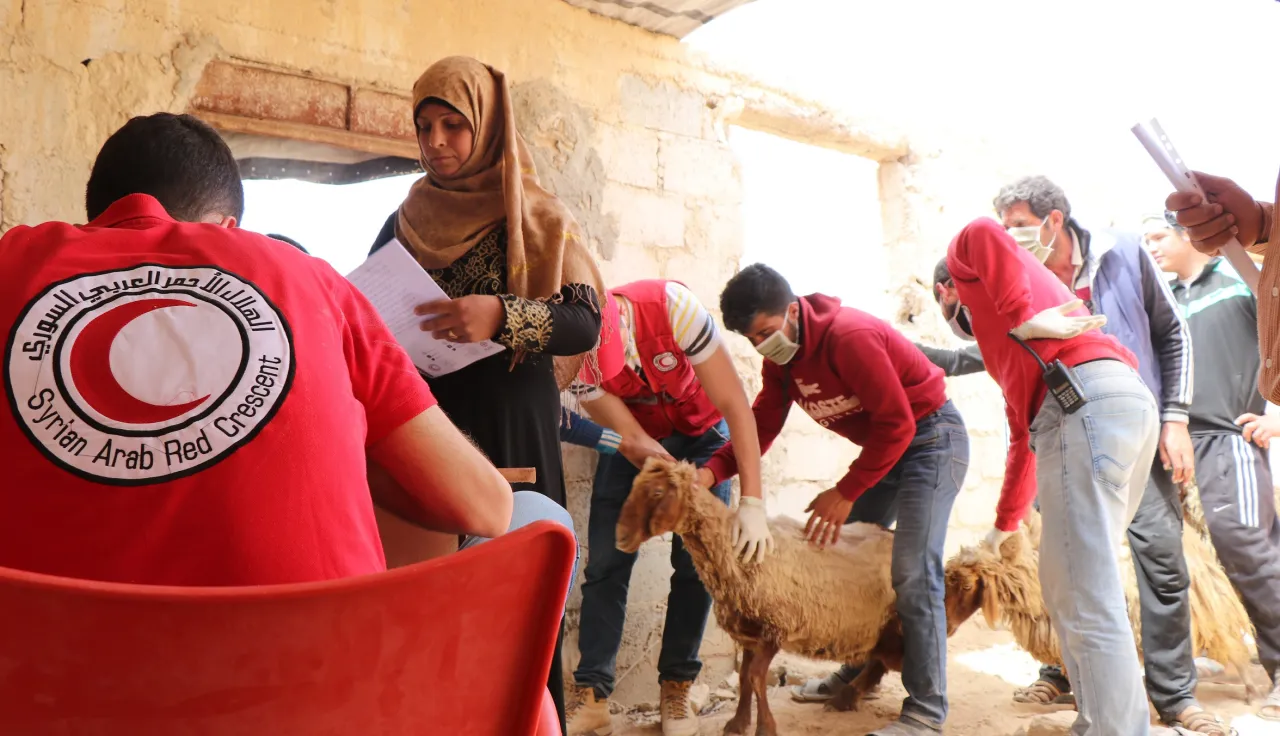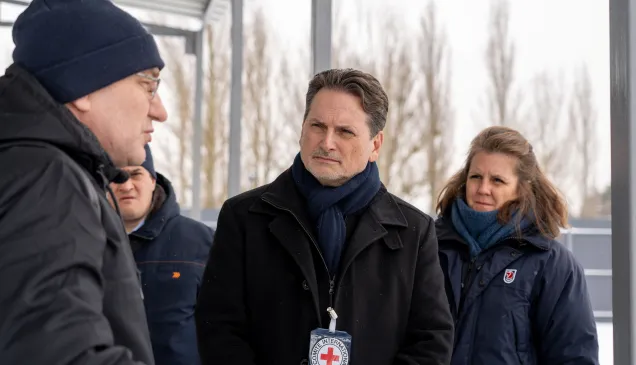• In Nigeria, 95 per cent of people we talked to told us their sources of income have suffered
• In Iraq, 83 per cent of people told us livelihoods have suffered
• In Ukraine, 75 per cent of people reported an increase in the price of basic items
Geneva (ICRC) – New survey data serves as a warning that economic hardships brought about by the COVID-19 pandemic could foster a boom in aid-dependency in countries at conflict without coordinated responses from governments, international financial institutions and humanitarian and development actors, the International Committee of the Red Cross (ICRC) said on Wednesday.
Without concerted action from the global community, we expect humanitarian needs to deepen and worsen in the wake of COVID-19. It is likely that new short- and longer-term health and protection needs will emerge, and that otherwise relatively resilient communities will need assistance.
The ongoing economic and food security impact of COVID-19 is massive and appears likely to worsen over time. In countries at conflict, millions already live with little or no health care, food, water and electricity, as well as volatile prices and destroyed infrastructure. COVID-19's impact could set in motion a vicious cycle of lost income, deepening poverty and hunger.
Early indications in conflict zones where the ICRC operates shows the vast impact of COVID-19:
- In Nigeria, 95 per cent of people in a 313-person ICRC survey said their livelihoods have suffered because of COVID-19, resulting in reduced salaries or revenue. In Iraq the number was 83 per cent (of 130 people); in Libya, the number was 52 per cent (of 190 people).
- In Iraq, 77 per cent interviewed reported having no savings to cope with the crisis; in Libya it was 85 per cent; in Nigeria 48 per cent.
- In Ukraine, 75 per cent of 215 people interviewed reported an increase in the price of basic items, while 47 per cent reported a reduction in market access.
"COVID-19 is causing a tremendous financial shock for families, particularly in conflict zones. I fear that without coordinated action from governments and humanitarians, the long-term consequences will be crippling," said Charlotte Bennborn, the head of ICRC's economic security department.
The ICRC calls for social protection programmes to be maintained or extended, and that they include the most vulnerable. Existing humanitarian activities focused on food security, nutrition and livelihoods must also be reinforced.
The typical coping mechanism that families use to overcome lean times — asking for loans from neighbours or family, reducing purchases, using savings — have been exhausted for many. The hardest-hit households were already food insecure, with physical and financial access to food markets restricted due to COVID.
Worryingly, chronic hunger/malnutrition and COVID-19 are mutually reinforcing, as previous outbreaks — Ebola, SARS, MERS — have negatively impacted food security, increasing malnutrition rates. Improving health systems in conflict zones offers positive returns locally and globally.
"In the near term, strengthening health, water and sanitation systems in conflict zones, to prevent and manage infectious disease transmission, must become a priority," said Esperanza Martinez, the ICRC's head of health.
Additionally, income shortages could hit families at a time when countries struggle to provide essential services, deepening food insecurity for people already at risk. When movement restrictions are imposed, people face a dire choice between earning a living and protecting their health.
Families that depend on remittances from migrant relatives are also at risk, as income opportunities even in wealthier countries deteriorate. Global remittances are projected to decline by 20 per cent in 2020 due to the COVID-induced economic crisis, according to the World Bank. In Yemen, for instance, COVID-19 has led to a significant diminution of remittances - perhaps as much as 70 per cent in Yemen, where the price of a food basket (rice, lentils, milk, flour, beans, cooking oil, sugar, salt) has risen 60 per cent since the conflict began in 2015.
For further information, please contact:
Ewan Watson, Geneva spokesperson, +41 792 446 470, ewatson@icrc.org
Jason Straziuso, Geneva spokesperson, +41 79 949 3512, changer@icrc.org
Ruth Hetherington, Middle East spokesperson, +41 79 447 3726, rhetherington@icrc.org
Sarah Alzawqari, Middle East spokesperson, +961 3138 353, salzawqari@icrc.org
Crystal Wells, East Africa spokesperson, +254 716 897 265, cwells@icrc.org
Halimatou Amadou, West Africa spokesperson, +221 78 186 46 87, hamadou@icrc.org




